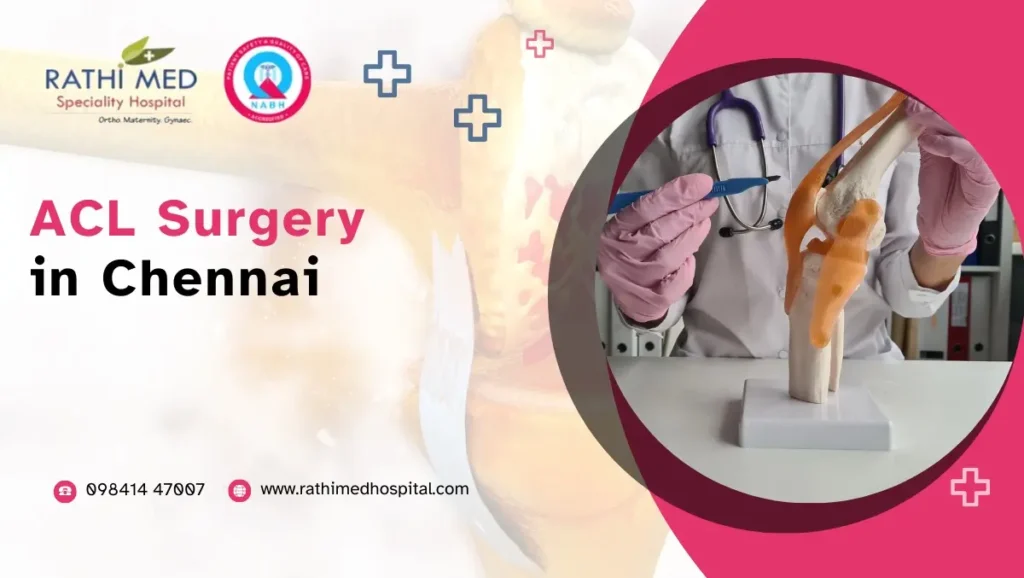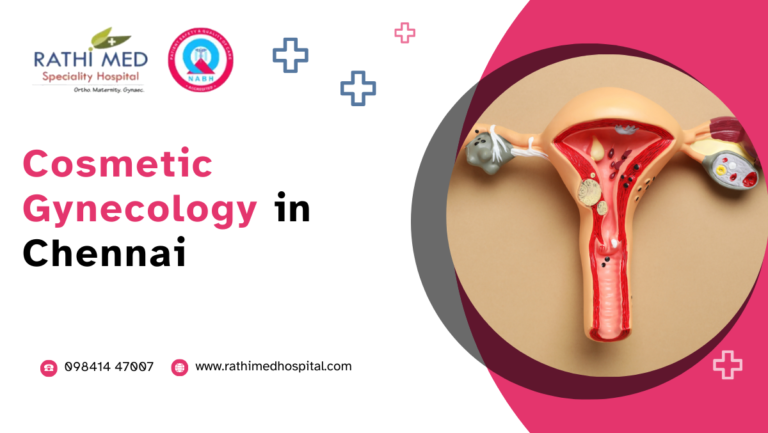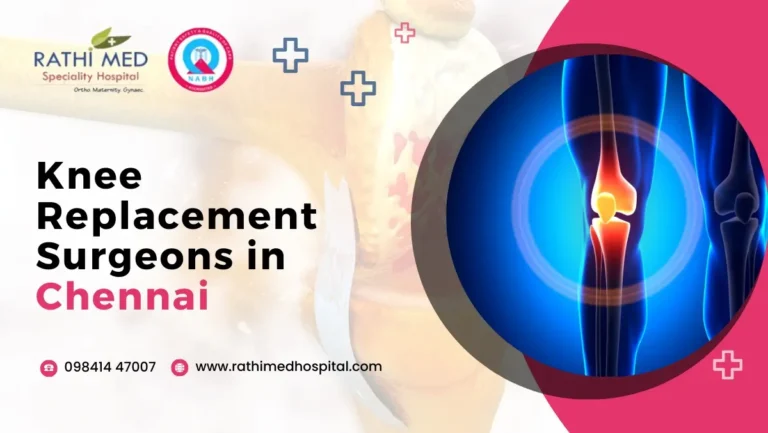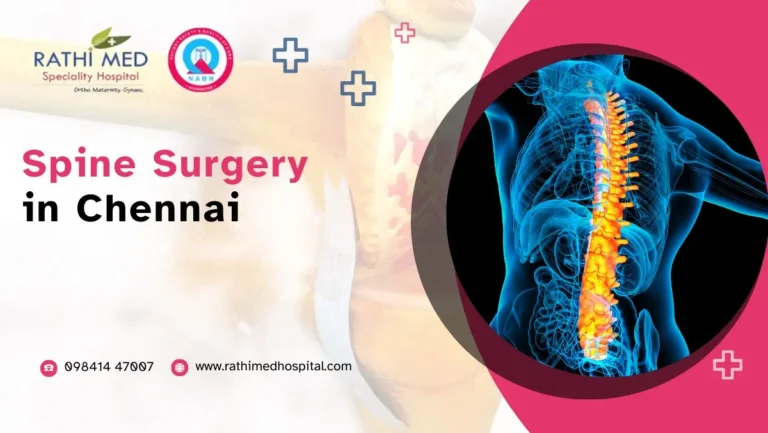ACI surgery in Chennai is becoming increasingly popular as a highly effective treatment for cartilage defects in the knee. For individuals suffering from joint pain or cartilage damage, this advanced surgical procedure offers a promising solution. Chennai, renowned for its medical expertise, is home to some of the best specialists and facilities for ACI surgery. This blog post will guide you through what ACI surgery is, how it works, and why it’s a leading choice for cartilage repair in Chennai.
Overview of ACI Surgery in Chennai
ACI surgery in Chennai involves the repair of damaged cartilage using a patient’s own cells, making it a highly personalized and effective treatment. ACI, or Autologous Chondrocyte Implantation, is particularly beneficial for younger, active patients who wish to maintain their joint function and avoid joint replacement surgery. In Chennai, the availability of advanced technology and skilled surgeons makes this procedure accessible to those in need of specialized care.
In addition to ACI surgery in Chennai, patients might also be interested in understanding the ACI surgery cost in Chennai, especially if they are dealing with ligament injuries along with cartilage damage. Understanding these costs helps patients plan their treatment effectively.
ACI surgery in Chennai is a two-step process. Initially, healthy cartilage cells are harvested from the patient and cultured in a lab. These cells are then implanted into the damaged area during a subsequent surgery. This procedure is especially recommended for patients with localized cartilage defects that cause pain and limit movement.

Symptoms
Autologous Chondrocyte Implantation (ACI) is primarily recommended for individuals experiencing persistent symptoms of cartilage damage in their joints. Some of the common symptoms include:
- Joint pain that worsens with movement or physical activity.
- Swelling around the affected joint.
- Stiffness or limited range of motion in the joint.
- Clicking or grinding sensation due to uneven cartilage.
- Recurrent joint locking or instability.
If you notice these symptoms, consulting ACI Surgery Doctors in Chennai can help diagnose and determine the best course of treatment.
Causes
Cartilage damage leading to the need for ACI surgery can result from:
- Traumatic injuries: Sports or accidents causing joint damage.
- Repetitive stress: Continuous pressure on joints, especially in athletes.
- Aging or degeneration: Gradual wear and tear with age.
- Congenital conditions: Structural joint abnormalities from birth.
Identifying these causes early with the help of the Best ACI Surgery in Chennai can prevent further complications and improve outcomes.
Procedure of ACI Surgery
The procedure for ACI surgery in Chennai is meticulously planned and executed in multiple stages:
Cartilage Harvesting
- Step 1: A small sample of healthy cartilage is taken from a non-weight-bearing area of the knee.
- Step 2: This sample is sent to a laboratory where the cells are cultured for 4-6 weeks.
Cell Implantation
- Step 1: Once enough cells have been grown, a second surgery is performed.
- Step 2: The damaged cartilage is removed, and the cultured cells are implanted into the defect site.
- Step 3: A periosteal flap or collagen membrane is used to cover the cells, ensuring they stay in place and begin to regenerate the cartilage.
Recovery
- Step 1: Post-surgery, the knee is kept immobile for a period to allow the cells to integrate and start forming new cartilage.
- Step 2: Physical therapy is gradually introduced to restore mobility and strength.
Key Takeaways
- Personalized treatment: Uses the patient’s own cells.
- Multi-stage process: Involves cell harvesting, culture, and implantation.
- Extended recovery: Requires careful postoperative care and rehabilitation.
How is the ACI Conducted?
Autologous Chondrocyte Implantation (ACI) is a specialized procedure used to repair cartilage damage in the knee. The process involves multiple steps to ensure effective cartilage regeneration.
- Cartilage Biopsy: A small sample of healthy cartilage is extracted from a non-weight-bearing area of the knee.
- Cell Culturing: The collected cartilage cells (chondrocytes) are sent to a laboratory, where they are cultured and multiplied over a few weeks.
- Surgical Implantation: Once sufficient cells have grown, they are implanted into the damaged area through a second surgery. A protective membrane is placed over the cells to facilitate regeneration.
- Rehabilitation: Post-surgery, a structured rehabilitation program is followed to ensure proper healing and restore joint function.
For those seeking Best ACI Surgery in Chennai, it is essential to consult experienced specialists who provide advanced treatment options with high success rates.
Postoperative Care
Postoperative care is crucial for the success of ACI surgery in Chennai. Proper rehabilitation ensures that the newly implanted cartilage integrates well and functions as intended. Here’s what patients can expect after the procedure:
Immediate Post-Surgery
- Immobilization: The knee is often immobilized with a brace or splint to protect the new cartilage.
- Pain Management: Medications are prescribed to manage pain and prevent infection.
Physical Therapy
- Phase 1: Gentle range-of-motion exercises begin within a few weeks to prevent stiffness.
- Phase 2: Strengthening exercises are introduced gradually to rebuild muscle around the knee.
- Phase 3: Functional training is implemented to restore normal knee function, focusing on activities of daily living.
Long-Term Care
- Monitoring: Regular follow-ups with your surgeon ensure the cartilage is healing properly.
- Lifestyle Adjustments: Patients may need to avoid high-impact activities initially, but with proper care, they can return to their normal activities.
ACI surgery doctors in Chennai emphasize the importance of adherence to the rehabilitation plan to ensure a successful outcome. Additionally, patients considering both ACI and ACL surgeries should consult with ACI surgery doctors in Chennai to understand the combined approach and recovery timeline.
Complications
Like any surgical procedure, ACI surgery in Chennai comes with potential risks and complications, though these are relatively rare. Understanding these risks helps patients make informed decisions.
Common Complications
- Infection: As with any surgery, there’s a risk of infection, which can usually be managed with antibiotics.
- Graft Failure: In some cases, the implanted cartilage cells may not integrate properly, leading to graft failure.
- Knee Stiffness: If rehabilitation is not followed correctly, patients may experience stiffness in the knee.
Rare Complications
- Overgrowth of Cartilage: Occasionally, the implanted cells can grow too much cartilage, requiring additional surgery to correct.
- Chronic Pain: Persistent pain may occur if the procedure does not address the underlying issue effectively.
Advantages of ACI Surgery
ACI surgery in Chennai offers several advantages, making it a preferred option for treating cartilage damage:
Minimally Invasive
- Personalized Treatment: Using the patient’s own cells minimizes the risk of rejection and complications.
- Natural Healing: The procedure promotes natural cartilage regeneration, which can result in better long-term outcomes compared to synthetic implants.
Preservation of Joint Function
- Avoids Joint Replacement: ACI surgery is a viable alternative to joint replacement, especially for younger patients.
- Long-Term Relief: Patients can experience long-term relief from pain and improved joint function, enhancing their quality of life.
High Success Rate
- Proven Results: Studies have shown high success rates for ACI, especially when performed by experienced surgeons.
- Durability: The regenerated cartilage can last for many years, reducing the likelihood of future surgeries.
These benefits make ACI surgery in Chennai an attractive option for those seeking effective treatment for cartilage damage. It’s important to also consider ACI surgery doctors in Chennai when dealing with comprehensive knee injuries that may require both ligament and cartilage repair.
Autologous Chondrocyte Implantation Surgery Doctors in Chennai
Chennai is home to some of the finest ACI Surgery Doctors, specializing in treating cartilage injuries using advanced ACI techniques. These experts are renowned for their:
- Personalized treatment plans tailored to each patient’s condition.
- Use of cutting-edge technology for effective cartilage repair.
- High success rates in restoring joint functionality.
If you’re seeking the Best ACI Surgery in Chennai, look for specialists with proven expertise in ACI and a patient-centric approach to care.
Conclusion
ACI surgery in Chennai represents a cutting-edge solution for those suffering from cartilage defects in the knee. This procedure, which utilizes the patient’s own cells to regenerate damaged cartilage, offers a promising alternative to more invasive treatments like joint replacement. With a combination of skilled surgeons, advanced technology, and comprehensive postoperative care, Chennai has established itself as a leading destination for ACI surgery. If you’re considering this procedure, consult with a qualified specialist in Chennai to explore your options and take the first step toward restoring your knee function.
Read also Knee Arthroscopy in ACL Reconstruction.





